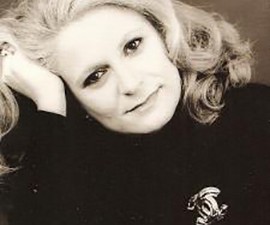Creative Writing for Beginners
Start Date: Anytime
Delivery: Online
Duration: 11 Weeks
Price: £700
What you can expect
This is a general course aimed at all writers no matter what genre. It will equip you with the skills to write fiction, non-fiction and academic manuscripts.
The course is one-to-one with a mentor and will involve a professional series of weekly tasks which will cover character creation; perfecting your plot; choosing the best point of view; writing interesting and exciting description; getting the dialogue right; and creating a convincing voice and setting.
You will be sent written guidance from our team of published authors and video talks featuring writers in all genres sharing their expert knowledge about writing, getting published and promoting your work.
Every student will have a dedicated tutor who will provide you with advice, support, and feedback and will be available to answer any questions.
Structure of course
Week 1: What do I want to write?
Method: Exercises with feedback, one-to-one advice via email
You will be given exercises that will help you look at your writing and establish what you want to write, in terms, not only of genre, but what you want to say and why. It is really important that writers understand what they want to achieve by becoming an author. We will help you discover whether you want to write to highlight an issue, become famous, to make money or to change the world. We will help you discover your inner writer.
Week 2: Plot
Method: Exercises with feedback, one-to-one advice via email
Learn about and experiment with plot development. This will include developing a storyline, identifying your reader, planning your story arc and deciding on the characters that will play out your story.
Weeks 3 and 4: Character
Method: Exercises with feedback, one-to-one advice via email
Who are your main characters, what do they want and how do you get them to become real and translate that onto the written page? We will help you get inside the world of your character and know them inside out. Who are your minor characters and how do they fit into the world you have created? We will also help you explore how your characters are linked to your plot and how they drive the story forward.
Week 5: Point of view
Method: Exercises with feedback, one-to-one advice via email
Who is a telling the story? Point of view is one of the most important decisions you have to make when writing, and it is perhaps the most difficult decision you will make. Exercises will help you explore if you want to write in the first person or through a third person narrator, or from one character’s point of view or those of more than one of your characters.
Week 6: Description
Method: Exercises with feedback, one-to-one advice via email
We look at how to present the world of your story and its occupants and help you craft this so it is original and fresh. Many readers say they skip the descriptions, but if done right, those readers will see your world without even realising you have stepped away from the plot.
Week 7: Dialogue
Method: Exercises with feedback, one-to-one advice via email
If your characters don’t sound authentic, they will not connect with the reader and you will never pull your audience into the world of your book. We will help you learn the principles of writing believable and engrossing dialogue.
Weeks 8 and 9: Voice
Method: Exercises with feedback, one-to-one advice via email
Explore how to give your narrators lively, persuasive and diverse voices. Revise your decisions on characters and look at their voices within the story.
Week 10: Setting
Method: Exercises with feedback, one-to-one advice via email
A strong setting is almost a character in its own right and it should have a soul that grounds the story. We will show you how to reflect different moods, and to master how setting has the ability to change and influence people and events. Here you will learn how to present a dynamic world within which the characters interact and struggle.
Week 11: Assignment
Method: Written material, exercises with feedback, one-to-one advice via email
Put what you have learnt into practice by writing an extended piece of fiction.
Reading List
To be a great writer you need to be a great reader.
You will receive a reading list of books that best reflect the lessons in the course.






